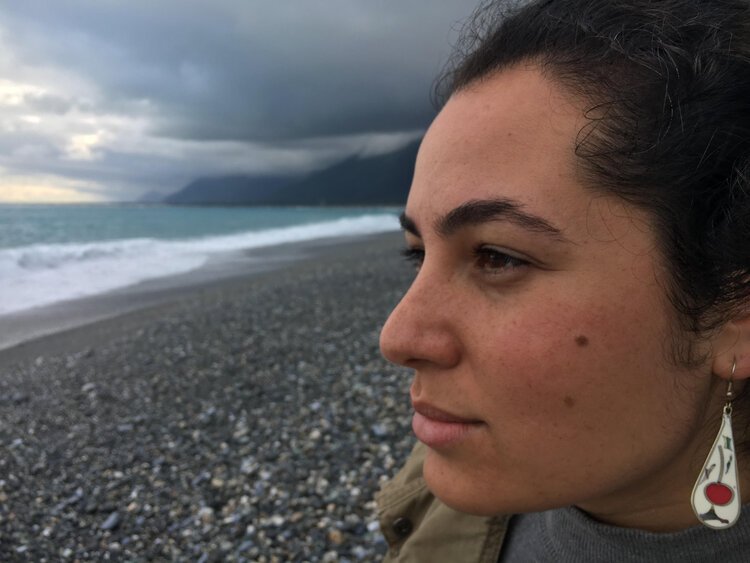From Seafaring Dreams to Social Purpose: an Interview with Tala Khanmalek, Founder of Sailing for Social Justice
Tala Khanmalek is an aspiring surfer and the founder of Sailing for Social Justice, a sponsored project of the Allied Media Projects. SSJ is a grassroots project that links sailing with social, environmental, and healing justice in both theory and practice. She is interviewed here by her long-time friend and mentor, Farhana Huq, the founder of Brown Girl Surf.
Farhana Huq (FH): When and how did sailing become such an integral force in your life?
Tala Khanmalek (TK): In 2014, I dreamt of sailing in a boat that I myself had built. Less than a week later I was in communication with The Arques School of Traditional Boatbuilding (Sausalito, CA). I like to cite my dream as a turning point because dreams are a source of ancestral and embodied knowledge. Even though I had never sailed in waking life, my dream opened me up to a knowing buried deep within.
FH: What was the compelling moment when you decided Sailing for Social Justice (SSJ) needs to exist? What were the issues you really felt needed attention?
TK: Until I founded SSJ in 2018, sailing was something that I pursued on my own while a full-time ethnic studies grad student at UC Berkeley but friends always asked me about it. Becoming more aware of the need to make learning a collective practice was one deciding factor. The other was mainstream sail culture, which is overwhelmingly white, elite, and masculine. Learning how to sail a keelboat is outrageously inaccessible; I wanted to both expose and remedy the inequities that prevent women of color like myself from sailing.
FH: What kind of impact has SSJ made since you started it?
TK: Simply naming a link between sailing and social justice has been significantly transformative because that link has been obscured by things like the hypervisibility of yatching and cruising. The first thing I did was develop a workshop about the role of sailing in past and present social movements, which I debuted at the 2018 Allied Media Conference and offered online thereafter. I receive the same feedback every time: folks want to know more—and take the helm—so now I dream of bolder educational projects.
FH: You’ve been both a friend of Brown Girl Surf (BGS) and personally coached by me. What inspiration have you drawn from our work together and how has that manifested in your conceiving for SSJ?
TK: The work of groups like Brown Girl Surf, Textured Waves, Kokoro y Mar and many others to further diversify surfing has motivated me to make waves in sailing and model possibilities for change. If brown girls surf then they most definitely sail! Yet our existence in mainstream surf and sail culture has been continuously erased. I imagined SSJ as a space to draw connections between, for example, the whitewashing of surfing and sailing and the racist, classist, and colonial underpinnings of beach access restrictions.
FH: What’s your vision for SSJ and what do you see its role in larger social justice and political movements of our times?
TK: My current vision for SSJ includes ecological justice-focused work as well as honoring, learning from, and collaborating with Indigenous seafarers. I have been fortunate enough to partake in The Cultural Conservancy’s Guardians of the Waters program and volunteer for the Polynesian Voyaging Society, both of which have greatly/humbly expanded my worldview of sailing and even of myself as a non-white settler on Turtle Island who, following immigration, was disconnected from my own seafaring lineages. For me, growing SSJ is also about doing the personal work of examining my identity and position within society and most importantly, on the water.
You can get involved and support SSJ here.


